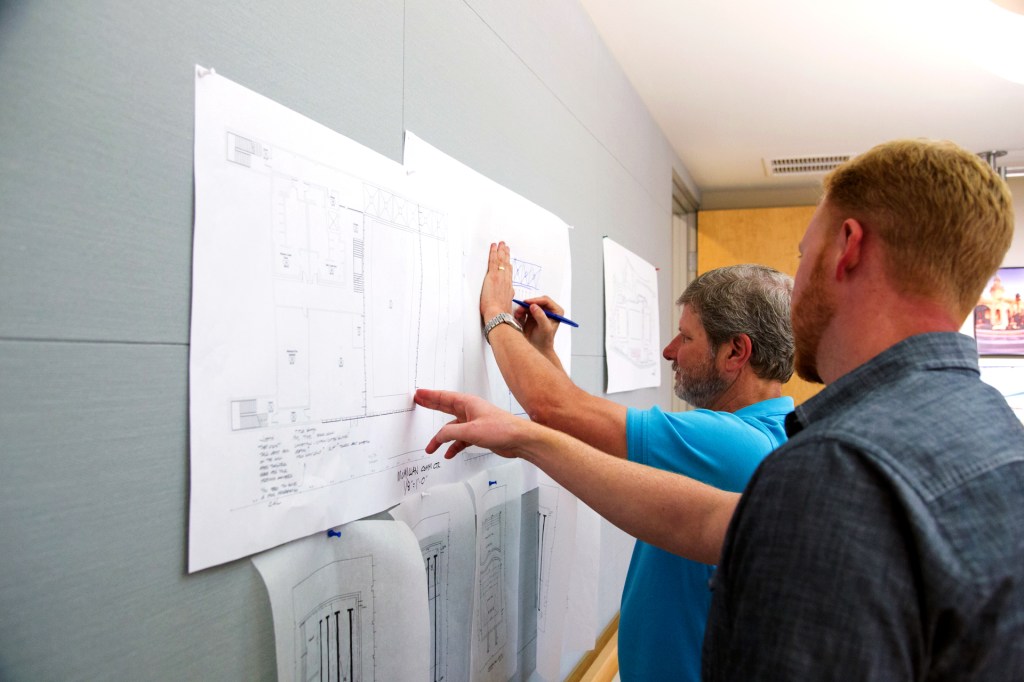When you look at Dennis Berkshire’s body of work in aquatics — whether in his paid position or thousands of volunteer hours — you’ll see something akin to a jigsaw puzzle. Each step along the way introduced a new piece, with the final picture being that of an expert both qualified and dedicated to writing public-pool standards that protect the consuming public first yet also keeps business viable.
For nearly a quarter century, Berkshire has served as president of Aquatic Design Group in the San Diego suburb of Carlsbad, Calif. For that last 15, he also has worked on standards writing.
The work of Berkshire and others who help draft the standards and codes play a vital role for safety and the industry — especially when it comes to providing innovative products and features that Health and Building departments don’t now how to address.
Piece by Piece
Like so many others, Berkshire didn’t set out to become an aquatics expert, yet the pieces started coming together from the time he was young.
As a college student, he took a job working at a pool and patio store, exposing him to fundamentals of the products and services the industry provides.
In college, he changed course from his original pre-med plans and double majored in business, with a Bachelor of Science in business administration and a Bachelor of Arts in communications.
“Then a manufacturer approached me when I was graduating,” Berkshire says. “I had lived in the Silicon Valley and didn’t really expect to follow [the pool and aquatics] track. I just kind of fell into it and never left.”
In his early career, he worked for a number of manufacturers and manufacturers representative firms. He quickly found out the chemistry he learned as a pre-med student came in handy for companies producing chemical treatment and control systems.
Eventually Berkshire moved to a large commercial distributor, which not only familiarized him with the equipment, chemistry and supplies in this space, but also led him to participate in the design of local facilities. “I became involved with clients on new aquatic centers and renovations,” Berkshire says.
Impressed with Berkshire’s work, Aquatic Design Group eventually recruited him. He served in a number of roles, including an associate working in project administration, a project manager, and a director of the project management group, before eventually being promoted to president. He is now finishing his 24th year with the firm.
Vital documents
Berkshire’s tenure in developing industry standard proves equally impressive.
He worked very closely and extensively on the Model Aquatic Health Code, serving as the original chair of the Technical Committee, overseeing arguably the most influential committee in the code’s writing.
As current chairman of the Pool & Hot Tub Alliance’s Commercial Council, Berkshire works on the PHTA standards that apply to public pools. The group has just completed a revision of the standard covering public pool operation and maintenance of public pools. Now it is now updating the standard governing the construction of public pools. Both are based on the MAHC.
Berkshire also serves on the committee that governs and revises NSF-50, the National Sanitation Foundation’s standard applying to equipment and products used for recreational water. For that organization, he recently wrote a position paper proposing that the industry take a closer look at surfaces in and around aquatics features to assess whether they leach hazardous substances, their porosity could lead to the harboring of pathogens, or in other ways might affect the health of the public.
This work has always struck him as vital to the safeguarding of industry products and protection of businesses. And it’s important to keep up.
“There are times where our industry would outpace the codes and standards,” Berkshire says.
While great for enhancing the aquatics experience, new technologies can bring regulatory hurdles. “Many times we have seen the authorities having jurisdiction, such as building departments and health departments, struggling to use old codes to new features that do not really apply.”
Berkshire has served as an instructor for the CPO and AFO operator certifications, and has contributed to textbook materials for both.
Whether in his paid position or his work as an industry volunteer, Berkshire derives great satisfaction from the public pool side of the business.
“On the commercial side, you have the ability to affect a whole lot of lives, knowing that you’re doing a new aquatic center for a city or municipality that can be used by tens of thousands of people,” he says. “You really have the ability to affect the quality of life for a community, from learn-to-swim, from recreation, from social places, and all settings.”
